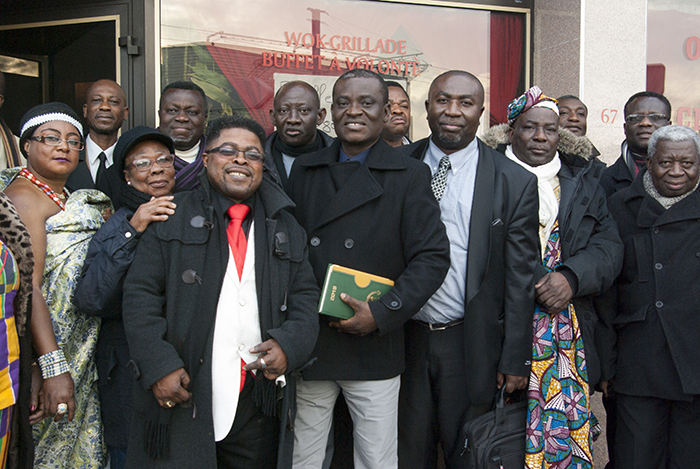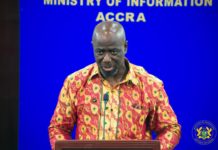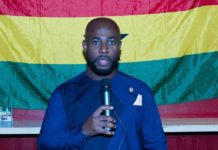
The Director of the Diaspora Affairs Directorate at the Presidency, Akwasi Awua Ababio, has beseeched Ghana’s Parliament to as a matter of priority repeal Article 94, Clause (2a) of the 1992 Constitution.
According to the said provision, “A person shall not be qualified to be a Member of Parliament if he owes allegiance to a country other than Ghana.”
This, argued Mr. Awua Ababio militates against the country’s quest to develop as it limits on a section of Ghanaians with dual citizenship from fully contributing their quota to Ghana’s development.
He said this Friday March 16, 2018 at a ceremony held at the Banquet Hall of the Flagstaff House to launch the Diaspora Magazine, an initiative of the Diaspora Affairs Directorate of the Office of the President.
“We are passionately lobbying parliament and other relevant stakeholders to repeal Article 94, sub clause 2a of the 1992 Constitution which limits and prevents Ghanaians with dual citizenship from fully participating in Ghana’s political discourse,” Mr. Awua Ababio disclosed.
In a remark read on his behalf by the Chief of Staff, Frema Osei Opare, President Akufo-Addo observed that the new magazine which will largely be a medium to highlight activities of Ghanaians in the diaspora to their compatriots back home and vice versa, is a timely intervention which has been birthed.
To that end, the President urged the editorial team to ensure that the magazine bridges the divide that hitherto has existed between Ghanaians in the diaspora and those who are home.
The Potential of the Ghanaian Diaspora
The Ghanaian diaspora constitutes a significant and successful economic, social and cultural force in many parts of the world. The last few decades have seen a significant change in the character of Ghanaian migration and it is led by the ‘new diaspora’.
These include skilled professionals in the diaspora who have acquired their basic college education in Ghana and have received advanced degrees abroad; first generation children of Ghanaian parentage in the diaspora who by the laws of Ghana are entitled to Ghanaian citizenship and therefore ought to be encouraged to take a stake in our nation’s development.
To look at the potential diasporan contribution only through the prism of remittances and financial inflows is to take a myopic view.
The measure of one’s contribution towards development cannot be assessed singularly through their financial transactions to mother Ghana.
The added value of the exchange of ideas between the local professionals and the diasporan professionals in the assimilative process of development is the unquantified value of this proposition. This fusion of ideas is how the middle class can grow to help build the nation.
Ghana’s New Outlook about the Diaspora
Ghana is beginning to recognize the need to pursue and promote the dynamics of the diaspora and development. The Ghanaian diasporan community is diverse and heterogeneous, representing different regions and tribes with its accompanying cultures, language and faith.
The common thread that binds us is the idea of Ghana and the values this idea affords us. The Ghanaian diaspora shares a very strong bond with mother Ghana and this is manifested in remittances sent back home and the return of many to live, work and engage in many development projects in the motherland.
Source: Ghana/Starrfmonline.com/103.5FM/Wilberforce Asare




